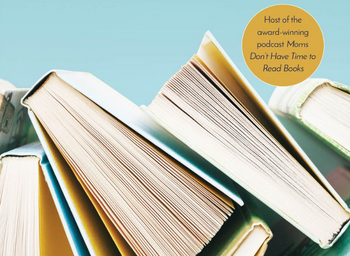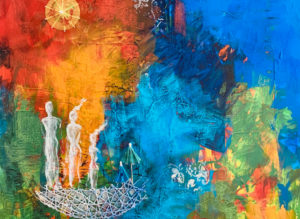From Bookworm to Book-Fluencer: Zibby Owens’ Literary Journey and the Power of Community
Jewish Arts Collaborative talks with Zibby Owens about loss, love, and the enchanting world of literature
Published Mar 13, 2023

One of the first things people want to know about Zibby Owens is how she acquired her name. In nursery school, a friend couldn’t pronounce the name Elizabeth, so it came out as Zibby. The name stuck, and Owens tells that charming story in her new memoir, Bookends: A Memoir of Loss, Love, and Literature, a narrative beautifully featuring those three themes.
Owens has readers turning pages as she writes about her evolution from a shy bookworm to a mother of four and CEO of her eponymous media company, Zibby Owens Media. She poignantly writes about her best friend’s death in Tower 1 at the World Trade Center on 9/11. She reflects on how the power of female friendships has sustained her in grief and joy.
Owens is a force of nature – a woman who found her voice and learned how to use it to foster community. Among her priorities is championing first-time authors and launching their books on her podcast, “Moms Don’t Have Time to Read.” (Full disclosure: I was a guest on Owens’ podcast to talk about my memoir). She has brought her “Moms Don’t Have Time” brand to two anthologies – Moms Don’t Have Time to Have Kids: A Timeless Anthology and Moms Don’t Have Time To: A Quarantine Anthology. This past year she founded Zibby Books, forging partnerships among writers, publishers, and readers.
Owens is refreshingly frank about the privileged life enabling her to realize and finance her ideas. She is similarly modest about her Ivy League pedigree and the connections it has brought. But Owens is a doer, teaching herself Apple’s Garage Band to jumpstart her podcast, and creating business plans for her media company. In the past year, she added book author to her impressive list of accomplishments, fulfilling a lifelong dream to have a significant voice in the literary and publishing conversation.
Owens has inspired people to get excited about all things books with New York Magazine calling her “New York’s Most Powerful Book-fluencer.” To that end, she established Zibby’s Virtual Book Club as a space for monthly book-centric conversations. She also recently launched Zibby Mag, an online publication showcasing personal essays, interviews, and book reviews.
Owens recently sat down for an interview with Kolture to discuss her book and media companies.
Judy Bolton-Fasman for Jewish Arts Collaborative: Books play an outsized role in your life on which you have built a successful literary business, including your own publishing house, Zibby Books. How did your love of books translate into a successful media company?
Zibby Owens: I’ve always used books to get through or enhance whatever experience, which is often not intentional. Sometimes a book finds me at just the right time. Sometimes I actively search for a book that might help me through something. But I have used the escape into books as another throughline for my own life experience. So everything that I read enhances what is already happening in real life, and I have this bonus literary life that marches alongside it.
JArts: Your husband, Kyle, understands how important Judaism is to you. So much so that he learned about Judaism on his own and chose to become Jewish, could you talk about your Jewish life and what Kyle’s conversion meant?
Owens: I never dreamed or expected that Kyle would convert. My first husband was Jewish, and it was important to me to have four Jewish kids. But with my second husband, it hadn’t crossed my mind. But as you said, he saw how important Judaism was to me. He often came with me to drop off my twins at Hebrew school and sat through services where he learned some of the blessings. I think he also felt left out that we were all sharing something he didn’t have access to. He comes from a family of Italian Catholics but never embraced Catholicism.
He was attracted to the community, culture, and the way Judaism especially bonded us as family, extended family, and many of our friends. I was delighted that he chose to become Jewish and couldn’t wait to tell my grandmother, who I knew would be particularly excited. But if you analyze my life, Judaism doesn’t take up much time. But from an emotional and cultural standpoint, it is a large portion of my identity. So, Kyle was looking to do something impactful. He also said he wanted to be together for all of eternity by making sure we were on the same team.
JArts: As I read your book, I keenly felt your connection to family, friends, and the importance of meaningful work. This brings me to your best friend Stacey Sanders, who died on 9/11. I experienced the parts about Stacey as you say Kaddish for her. She’s so important to understand you and to the book’s overall trajectory. Can you share a bit about her?
Owens: Stacey was my college roommate, best friend, and roommate after college. She was also Jewish. She had this zest for life and confidence at a young age that I didn’t have. I think I have that confidence now, but back then, I certainly didn’t. Stacey encouraged me to come out of my shell. I feel like I helped her in more boring ways, like becoming a mini mom to her. But for whatever reason, the two of us clicked and ended up having this very close relationship. She changed my life while she was alive and continued to change it when she passed away. The trauma of her death on 9/11 is something I have never gotten over. You might say it was complicated grief, an expression I didn’t know back then. My relationship with Stacey in life and posthumously has become one of the most central parts of my own story. Maintaining her legacy and keeping her spirit alive is very important to me. I want to remind people that her death shows how life can end at any moment. I don’t want to scare people by saying that, but I want to motivate people to appreciate the everyday.
JArts: A piece you wrote called, “A Mother’s Right to Sanity”, brought your unique voice to a wider audience. In it, you explored some of the paradoxes of motherhood and presented a kind of manifesto. What are some of those paradoxes?
Owens: The main one is how much time needs to be spent in the management of being a parent and the logistics of that versus spending time with your children. As a divorced mom who has less time with the kids than other people, and now as a divorced working mom, I want to spend less time on management and logistics. The more kids you have, the less time you have to spend with them if you’re going to do an effective job of managing their lives.
JArts: You’re very open about your privilege and wealth. You’re also frank about how important it is to use your privilege to help people. Part of your work is about lifting writers and bringing their work to a broader audience. You make yourself available to people who need you.
Owens: I’ve always been like that. When I was in fifth grade, I was a Secret Santa and I spent hours making sure my gift for this girl, Abigail, was perfect. I remember my mother watching me wrap and personalize gifts and saying, “Zibby, I don’t want you to be disappointed. Other people won’t put that much effort into gifts for you.” I told her it didn’t matter. I love giving. I want to make people happy. That’s who I am.
JArts: You are always reading to prepare for the “Moms Don’t Have Time to Read” podcast. I was interested to learn that you thought so highly of James Frey’s untrue memoir, A Million Little Pieces, and how much you liked the book despite its post-publication controversy.
Owens: I still love that book. I had my son read it at boarding school. There was something unique and fascinating about it. However, it took something away, knowing it wasn’t true. But still, my reading and experience with that book were of the book itself, regardless of true-false. As a book and an entertainment vehicle, I found it engrossing. I look at books without the controversy surrounding them. American Dirt by Jeanine Cummins is another book I stand by. It’s one of my all-time favorite books. I wrote an article defending Cummins when everybody was down on her. I understand the issues, but when I find a book that allows me to learn, escape, become more empathetic, and understand people better, it’s hard to have that taken away after the fact.
Hear more from Zibby Owens on Good Morning America here.
Follow Zibby Owens on Instagram and Twitter.
Find Bookends: A Memoir of Loss, Love, and Literature at your local library.
Judy Bolton-Fasman is the author of ASYLUM: A Memoir of Family Secrets from Mandel Vilar Press.
Reflections
For bookworms:
How did your love of books make an impact on your life?
For women:
How have female friendships sustained you in your life? Share a story or a little bit about someone close to you.
Reflect
In this interview, Zibby says "if you analyze my life, Judaism doesn't take up much time" when talking about her husband's conversion and her cultural Jewishness. What is she saying about her relationship with Judaism? Do you relate?
Want more?
Get curated JewishArts.org content in your inbox


